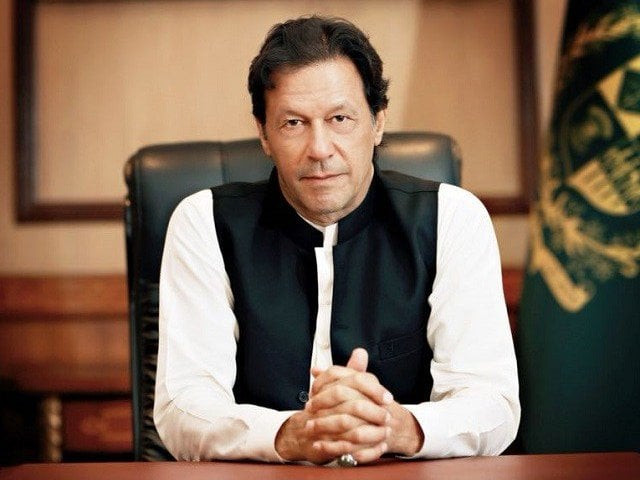Will ‘IKnomics’ bring Pakistan out of economic crisis?
PM focuses on increasing exports, legal remittances, investment and controlling money laundering

PM focuses on increasing exports, legal remittances, investment and controlling money laundering
PHOTO: PID
First, it must increase its exports; second, overseas Pakistanis need to send all remittances through legal means; third, it must increase investment; and fourth, it must control money laundering. I believe that this four-point agenda, which he presented recently during a trip to Malaysia, does hold weight. This article explains “IKnomics” or economics in the short run.
Increasing exports
The only way to improve our trade balance is to increase exports. It is futile to cut imports. Recent additions to the imports were more to do with machinery imports and less with increased consumption. This will take a while as our manufacturing base can put the newly acquired capital in increased production and exports.
Let’s consider how we can achieve this in the short run. To some extent, the end of exchange rate control, by default or by design, has helped in achieving this, by making exports cheaper and imports expensive.
Moreover, aggressive marketing efforts can increase tourism receipts from foreign tourists, with relatively quick relaxation in visa regimes. The previous government took the right step by announcing on-arrival tourist visas for 30 countries. The present government needs to promote and implement this.
In the long run, exports can be enhanced only through deliberate diversification, backed up by improved productivity, in which the government plays an important role through economic diplomacy.
Improving remittances
The potential of improving legal remittances is real. The government estimates that this can yield at least $10 billion in the short run, a 50% increase from the current level.
Pakistan made significant progress on this front back in 2006-07. It can undertake a similar drive again. However, banks need to take a lead role by making transactions, including even the smaller ones, seamless and cost-effective.
Increasing investment
To increase investment in the country, Imran’s hand is on the right pulse. It was heartening to listen to the prime minister being committed to focusing on the ease of doing business and facilitating investors to create wealth and earn profits.
He also mentioned that unfortunately, the red tape culture in Pakistan is anti-profit, which means our culture is anti-investment. A country in which the tax burden on industrialists is extremely high and payment of taxes take good amount of taxpayers’ time, cannot attract new investors.
Controlling money laundering
The government estimates that each year, at least $10-15 billion is sent outside illegally via money laundering. This money is created from corruption, tax theft and other criminal ways. It is impossible to stop this illicit flow of money completely, however, it can certainly be reduced.
Size of Pakistan’s economy is $313.13 billion, says SBP
The illicit outflow of money usually happens through the purchase of dollars from open market, which also causes the dollar to appreciate against the national currency. A popular destination of this money is Dubai, where Pakistanis, infamously, have become the largest property investors.
The government cannot get the money back, which is already white-washed in Dubai through investments, as Dubai has always been an attractive place for black money.
Therefore, the only way out is to significantly enhance enforcement on the illegal foreign exchange market, which in turn can be adjusted by relaxing controls and reducing the cost of legal foreign exchange flows.
Worst is over for Pakistan’s beleaguered economy: Umar
These four steps - facilitating exports, ensuring remittances through banks, ensuring more investors and curbing illicit outflow of money – can help the government significantly curtail its current account deficit, without recourse to the International Monetary Fund (IMF).
It will also help in creating a resource envelope, which can then be considered by the government for its social protection agenda.
The writer is the founder of PRIME Institute and is currently based in Malaysia as CEO of IDEAS
Published in The Express Tribune, November 26th, 2018.
Like Business on Facebook, follow @TribuneBiz on Twitter to stay informed and join in the conversation.


1733130350-0/Untitled-design-(76)1733130350-0-208x130.webp)
















COMMENTS
Comments are moderated and generally will be posted if they are on-topic and not abusive.
For more information, please see our Comments FAQ